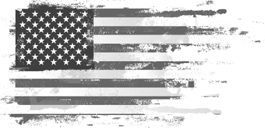home | north bay bohemian index | news | north bay | news article

They hate us, they really hate us: According to a recent Pew Global Attitudes survey, U.S. approval ratings worldwide have dropped in 26 of the 33 countries that participated in the poll.
Old Glories
New poll results show that it's a lonely business defending America
By Niall Stanage
America can be hard to love these days. And persuading non-Americans even to like it can seem an impossible task.
Believe me, I have tried.
In the run-up to the Fourth of July, I was invited to participate in a radio discussion in my native Ireland. The subject was the United States. I wanted to talk about the aspects of the nation that I have grown to admire in the four years I have lived here.
I didn't get a chance. The discussion revolved around President Bush, America's myriad social and political problems and its plummeting standing in the world.
I ended up on defense for the duration.
I am getting used to this kind of experience. To mark last year's Independence Day, I wrote an article for an Irish newspaper headlined "50 Reasons to Love America." I listed everything from the Gettysburg Address to Seinfeld, hoping, just once, to undercut the hostile assumptions implicit in so much European media coverage. I got a slew of responses from my compatriots deriding me as a Bush apologist.
On one recent New Year's Eve, back in Ireland, I found myself on the receiving end of a verbal assault from a woman after merely telling her I lived in the States. She delivered a lengthy harangue about American foreign policy, then moved on to condemn misters Bush, Cheney, Rumsfeld and various other people of whom she was less than enamored. "And I'm surprised at somebody from Belfast choosing to live among that shite!" she concluded.
Conversation rather dried up after that.
Personal anecdotes only prove so much, but hard statistics tell a similar story. The latest Pew Global Attitudes survey was just released. The news was grim. Since 2002, favorability ratings for the United States have fallen in 26 of the 33 countries for which trends are available. An estimated 78 percent of Germans held a positive view of the United States in 1999-2000. Today, that figure is 30 percent. In Turkey, the drop was from 52 percent to 9 percent. In Argentina, 50 percent to just 16. Even in the States' leading ally, the United Kingdom, America's favorability rating has fallen precipitously, from 83 to 51 percent.
Among some figures in the liberal left in Europe, especially those long motivated by a visceral dislike of all things American, that data is a source of perverse glee. To me, though, it swells with sadness.
The promise of America, a precious thing, has become cankered.
When my friends and I were growing up in Ireland in the '80s and '90s, the nation on the far side of the Atlantic was an object of desire. We vested such hope and even excitement in the idea of America. We did so to an extent that now seems absurdly na´ve. Back then, our understanding of America was primarily rooted in popular culture rather than politics. But the two often become woven together into one epic narrative. That narrative then stretched back, drawing in charismatic figures from America's past.
To think of America was to think not just of, say, Bill Clinton and Kurt Cobain, but of John Kennedy and Marlon Brando, of Martin Luther King and Muhammad Ali, of Franklin Roosevelt and Aretha Franklin.
That America is fading from memory. Its glory has been extinguished by this administration. I doubt whether the adolescents of Ireland or anywhere else now grow up feeling affection for a nation that has grown synonymous with its bull-headed president and his sepulchral deputy.
When I go back to Ireland these days, every assertion of American good intentions is met with a sneer; every attempt to talk about America's role in the world is beaten back by the example of Iraq; every effort to draw attention to the injustices perpetrated by America's enemies is met with one of two responses: one involves the word "Guantanamo," the other the words "Abu Ghraib."
It's hard to find a good answer to that.
On the Irish radio show recently, a co-contributor complained about the stereotypical view many Americans have of Europeans. I tried to point out that the tendency toward caricature runs both ways. In the European media, for example, the lesson drawn from Bush's successive electoral victories was simply that Americans are hopelessly afflicted by a toxic blend of stupidity, bigotry and malevolence.
That was wrong. Yet it's also telling that even when my conservative American friends cite heroes, no names from the current administration are mentioned.
I can't blame them for getting misty-eyed about Ronald Reagan or Ayn Rand when the world's most famous contemporary conservative makes cronyism a guiding principle, appears to believe the power of prayer can deliver his nation from military disaster and lets his disdain for intellectual inquiry seep from every pore.
"[The] great shortcoming of this White House, the great thing it is missing, is simple wisdom," Peggy Noonan wrote in the Wall Street Journal last month. "Just wisdom--a sense that they did not invent history, that this moment is not all there is . . . that maturity is not the same thing as cowardice."
In the wake of 9-11, the French newspaper Le Monde famously published an article headlined, "We Are All Americans." Such transatlantic affection seems like a relic from a different era.
It would be nice to think that America's reputation could be restored as quickly as it has been besmirched. The dream of America that so many of us held for so long lies punctured and lifeless. It will not easily be resuscitated.
Send a letter to the editor about this story.
|
|
|
|
|
|